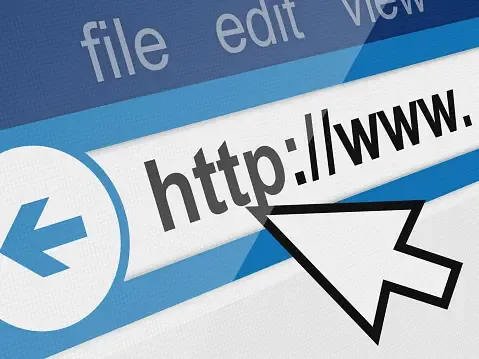Your website has an IP (Internet Protocol) address of 67.15.4.94 and can be reached via the Internet by typing http://67.15.4.94. Instead of typing a string of difficult-to-remember numbers, you can register an easier-to-remember domain name that is linked to your IP address. Visitors who type in a simple domain name will be directed to your IP address. Some domain names are related to the content of the website, while others are just the name or an abbreviation of your company, similar to a 1-800 vanity phone number.
Tips to help you pick a domain name:
Choosing: Choosing a domain name is similar to naming your business or law practice. The name should, ideally, be congruent with your brand. Determine whether you're branding your company's, product's, or service's name. Your domain name should be easy to remember, brief, and have a "ring" to it or conjure up an image in the consumer's head.
Trademark: Before registering your domain name, be sure it hasn't already been trademarked by the United States Patent and Trademark Office. You may find out by going to www.uspto.gov and clicking on Search under Trademarks. Assuming that your choice has not been trademarked and you have now registered a non-generic domain name, you may want to protect your name by filing a Trademark or Service mark application.
Domain Name Ownership: When you register a domain name, be sure you are the registrant. Some web design services will register your domain name as the registrant in their name. This will give them control over your name, effectively holding you prisoner. You may easily register your domain name at 8.95Domains.com or GoDaddy.com for $8.95 per year.
Hyphens: There has been some confusion about whether or not hyphens should be used in a domain name. To begin with, the domain name you offer out to the general public must be free of hyphens. The domain name without hyphens is the one that everyone will type into their Internet browser's address bar.
Some individuals recommend having a domain name with hyphens because it forces search engines to see keywords in your domain name, allowing your website to rank higher in search engine results. Smaller search engines may not be able to see individual words without hyphens, and even larger search engines may see a term differently than you wish.
As a result, the value of a hyphenated domain name has dropped. If you want to utilize a hyphenated domain name like Lawyer-Advertising-Blog.com, you should also register an unhyphenated domain name that will point to the hyphenated domain name. In print and advertising, use the domain name without the hyphen.
Extensions: Domain names come in a variety of extensions, including.com,.net,.org, and many others. You can register domain names in a variety of extensions if it's truly important to you, but for most businesses, the.com extension is the most crucial. If you really must use.org, you should also register your name with the.com extension.
Top Level Domain vs. Sub-Level Domains: A sub level domain is a second level domain under a first level domain name and can look like yourfirm.freehosting.com. You must have your own domain name. Do not under any circumstances use a free hosting service, since free hosting services will only give you a sub level domain. No one will ever remember it and it’s sort of like handwriting your own letterhead.
Domain Name Ethics for Law Firms: Instead of using a trade name, which is forbidden, a website name should be used as an address. Advertise your website name as an address, not a trade name, so that people can discover it. Some web site domain names, like vanity phone numbers, might be unethical. Make sure your website's name doesn't contain any words that could lead to a false expectation in the minds of customers or breach one of the other ethics guidelines.
Your domain name should not imply that you are superior to other lawyers or that you can achieve anything that may or may not be possible. The use of words like "BEST", "TOP", "FOREMOST", "LEADING", "WIN" and similar words in a web site domain name might lead to a false expectation in the minds of customers, and in most states, this is against the law.
LeadingLawyer.com or BestLawyer.com, for example, will almost certainly be in violation of professional ethical regulations by insinuating that you are a leading lawyer or the best lawyer. The question is, by what standards do you lead or excel, and in what areas? WinningLawyer.com or WinningCase.com could be a better choice for a casino because it implies that anyone who becomes a client of the business will win money, which may or may not occur, and even if it does, it will be for just compensation, not gaming.

